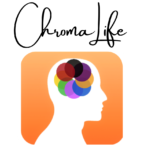
One tool that has gained popularity is the workplace personality test. In today’s fast-paced work environment, organizations are always looking for ways to improve team dynamics and boost productivity. These tests offer insights into employees’ traits, behaviors, and preferences, helping companies to better understand their workforce and create more harmonious and effective teams.
In this article not only will you learn of the 3 agonizing reasons why reasons why workplace personality tests may be stopping you from securing a job; you’ll learn the secrets to overcoming them!
Table of Contents
You may have encountered personality tests at work or heard about them from colleagues. They range from color assessments to more comprehensive workplace personality assessments.
These tools aim to promote self-discovery and provide valuable information for both employees and employers. While personality tests in the workplace can have a significant impact on organizational culture and team building, they also come with potential drawbacks. This article will explore the benefits and challenges of employee personality testing, helping you to consider its role in your work environment.
Understanding Workplace Personality Assessments
Workplace personality assessments are tools that HR professionals and business owners use to gain insights into employees’ traits, behaviors, and preferences. These tests help you pinpoint areas of strength and improvement, create avenues for vulnerability-based trust, and show ways to be more productive. They’re effective because they shift your focus from what you have been doing to what you like to do and want to do.
When used correctly, personality assessments provide valuable insight into your career preferences, strengths, and interests. They can help you find a career that capitalizes on what you—and only you—bring to the table. However, it’s crucial to understand that personality tests are not the only tool managers should use in these scenarios.
Remember, long-term success is bigger than raw output — it also demands maintaining a healthy, supportive environment where people actually want to work. Personality assessments can play a significant role in creating such an environment by helping team members better understand each other.
Positive Impact on Organizational Culture
Personality tests in the workplace can have a significant positive impact on organizational culture. By implementing these assessments, you can enhance team dynamics and improve overall productivity. Organizations that utilize personality assessments report a 30% increase in employee satisfaction, as employees feel better matched to roles that align with their innate personality styles. This improvement is largely attributed to enhanced communication and collaboration among team members.
Today, you can discover what personality traits you have and how these may be hindering you in either securing or maintaining a job. Click below!
Personality assessments can guide your daily workplace interactions to boost team morale and engagement by creating a productive environment for your team to thrive. They provide a platform to understand the complexities of individuality and how it can influence relationships, helping to bridge gaps between people with different workplace needs.
To implement personality assessments effectively:
- Use them to build cohesive teams
- Enhance your hiring process
- Facilitate personal and professional development
- Improve conflict resolution and communication
- Identify leadership potential
- Create tailored employee engagement strategies
By leveraging these tools, you’re not merely filling positions; you’re crafting a cohesive work environment that fosters collaboration and innovation.
Challenges in Implementing Personality Tests
While personality tests can be beneficial, they come with their own set of challenges. One significant issue is the potential for inaccuracy. Research indicates that most workplace personality tests lack precision, and some evidence suggests that all personality screening might be detrimental to both diversity and productivity.
The cost of implementing these assessments can be substantial. Prices can range from under $100 to $5,000 per candidate or employee. Additionally, the time required for testing and obtaining results from a professional can lead to losing potential candidates to other companies.
Privacy concerns also pose a significant challenge. A survey by the Society for Human Resource Management found that 75% of employees would lose trust in their employer if their privacy rights were violated during testing. This highlights the critical need for robust data protection measures and ethical data usage practices.
Balancing Benefits and Drawbacks
When implementing personality tests in your workplace, it’s crucial to strike a balance between their advantages and potential pitfalls. While these assessments can offer valuable insights, they’re not without challenges. For instance, a mid-sized tech firm, TechX, reported a 30% drop in turnover and improved team collaboration after integrating personality assessments into their recruitment process. However, it’s essential to recognize that personality tests can introduce bias. Some organizations have faced legal scrutiny for their use of these tests in hiring processes.
To maximize benefits while minimizing drawbacks, consider pairing personality assessments with other evaluation methods, such as structured interviews and skills assessments. This approach creates a more comprehensive picture of an employee’s potential. Additionally, ensure transparency about the test’s purpose and involve candidates in the feedback process to foster a positive experience.
The 3 Agonizing Reasons Why Workplace Personality Tests May Be Stopping You From Securing a Job – and the Secrets to Overcoming Them!
- Misalignment with desired traits– Reason: The test results may indicate personality traits that don’t align with the company’s perceived ideal candidate profile or values.
- How to overcome:
- Research the company culture and values beforehand
- Practice taking similar tests to understand your typical results
- Focus on highlighting your adaptability and willingness to learn in interviews
- How to overcome:
- Inconsistent or “dishonest” responses
- Reason: Attempting to game the system by providing answers you think the employer wants can lead to inconsistent results, flagging you as potentially dishonest.
- How to overcome:
- Answer questions honestly and consistently
- Reflect on your genuine strengths and weaknesses before taking the test
- If given the opportunity, explain any potential discrepancies in your results during the interview
- Oversimplification of complex personalities
- Reason: A Personality test may categorize individuals into broad types, potentially overlooking nuances and unique qualities that could make you an excellent fit for the role.
- How to overcome:
- Supplement test results with concrete examples of your work experience and achievements
- Request an opportunity to discuss your results and provide context
- Emphasize your ability to adapt your working style to different situations
Remember, while personality tests can be a hurdle, they are just one part of the hiring process. Focus on showcasing your skills, experience, and genuine enthusiasm for the role throughout the entire application and interview process.
Conclusion
Personality tests in the workplace have a significant impact on organizational culture and team dynamics. They offer valuable insights into employees’ traits and preferences, helping to create more harmonious and effective teams. While these assessments can boost productivity and employee satisfaction, it’s crucial to be aware of their potential drawbacks, such as inaccuracy and privacy concerns. By carefully weighing the benefits against the challenges, organizations can make informed decisions about implementing personality tests to enhance their work environment.
Ultimately, the key lies in using personality assessments as part of a broader strategy for employee development and team building. When used thoughtfully, these tools can lead to better communication, improved conflict resolution, and more tailored engagement strategies. Remember, the goal is to create a workplace where people not only perform well but also genuinely enjoy working together.
To get started on your journey of self-discovery and team improvement, why not take the ChromaLife Color Personality Test today! Just click below.
FAQs
What are the advantages and disadvantages of implementing personality tests in organizations?

Personality assessments can significantly enhance hiring processes, improve team dynamics, and facilitate leadership development. However, they may also introduce issues such as potential biases and concerns over privacy.
How do personality tests benefit the workplace?

Personality tests can effectively highlight employees’ strengths and interests, helping management to better ascertain how individuals can contribute value to the organization. These assessments are particularly useful for identifying potential leaders and understanding various leadership styles.
What issues arise from using personality tests in the workplace?

One major limitation of personality tests is their inability to predict an individual’s effectiveness in team settings or their capacity to develop teamwork skills over time. These tests may fail to account for changes in behavior that occur in different social contexts, such as a typically outgoing person becoming reserved around other extroverts.
What are the drawbacks for employers who use personality testing during the hiring process?

Employers face the risk of obtaining inaccurate results from personality tests as candidates might tailor their answers to what they believe the employer desires to see, rather than reflecting their true personality traits. Additionally, the objectives of the test may not align well with the employer’s hiring strategy, leading to inefficiencies.
You may also enjoy these related articles:
